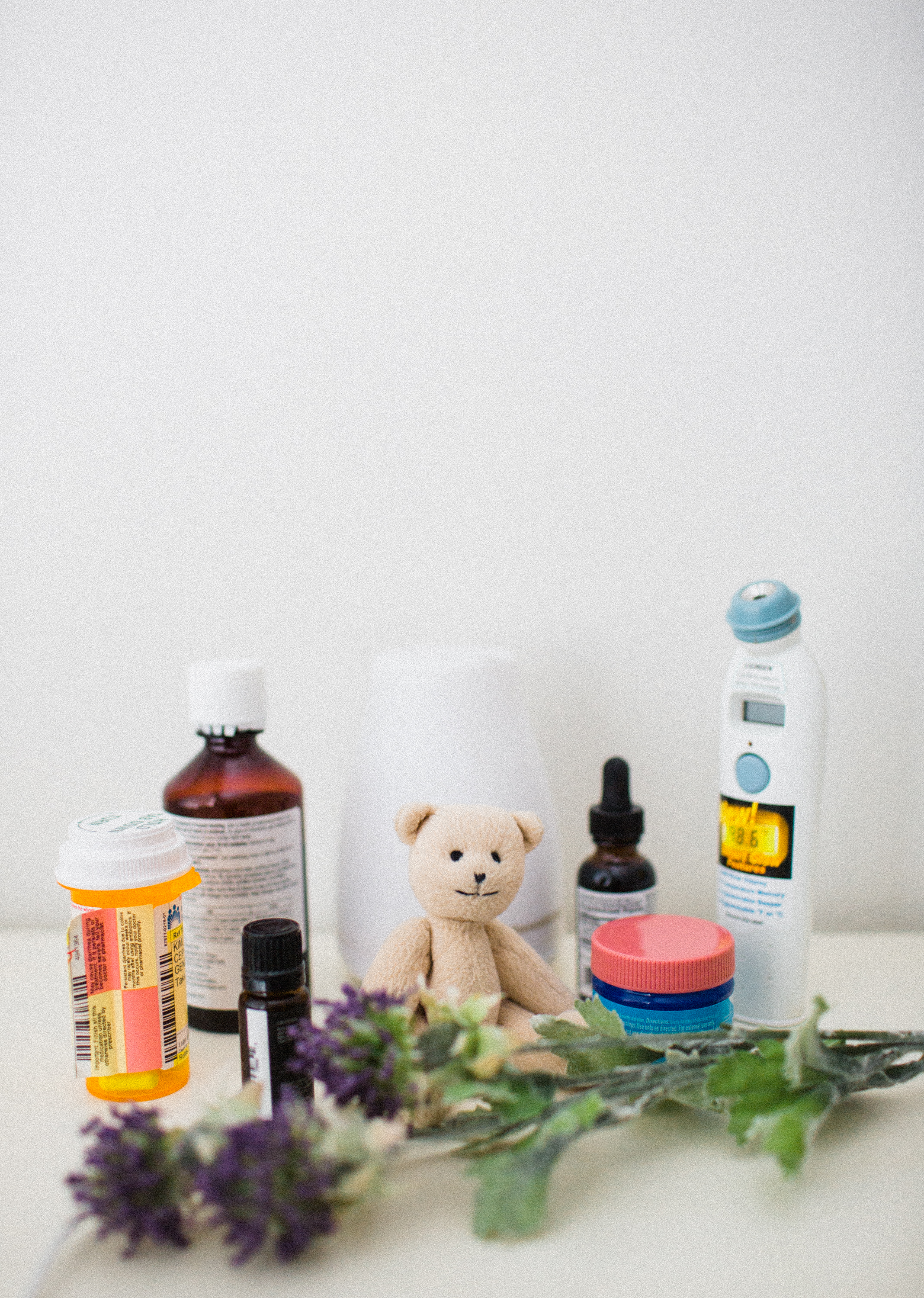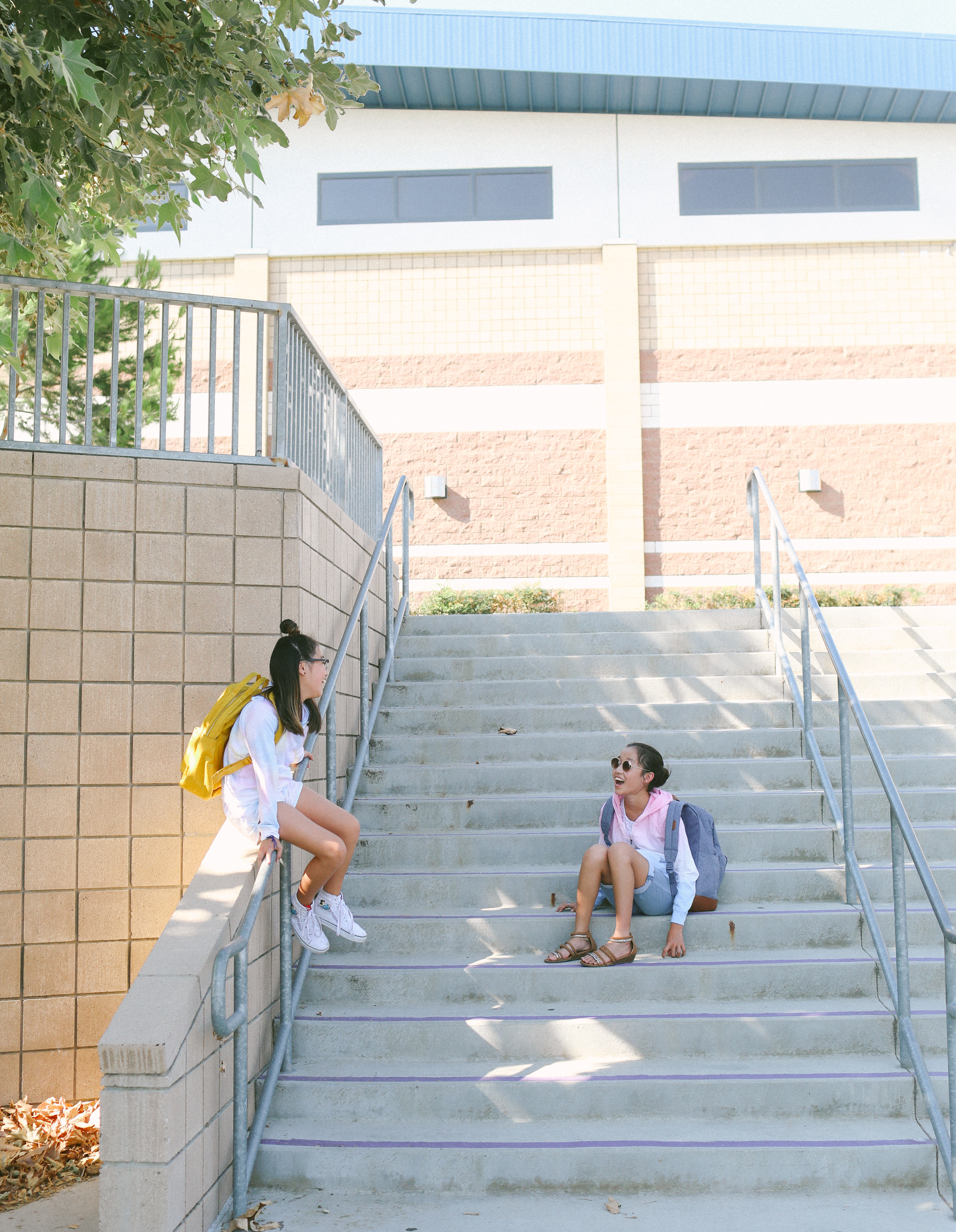How does the back-to-school transition usually go for you? When I first wrote this post, my oldest daughter was struggling to transition to a brand new school with new teachers and friends. With her starting middle school, parenting feels entirely new again as I learn to tackle new behaviors, life skills, milestones and challenges.
To help you support your child and better prepare for the upcoming cold season as our kids begin a new school year, my brand partner KnowYourOTC’s.org* provided the following self-care tips for parents with different aged groups. Since there’s a lot to read here, you can skip to the section that applies to you and your family!
*In 2023, KnowYourOTC’s.org was rebuilt and renamed. The new website, HealthInHand.org, is a valuable resource for information on over-the-counter (OTC) medicines, dietary supplements, and personal medical devices.
Self-Care Reminders For Kids: Back-To-School
4 Tips for Parents of Preschool-Aged Kids:
When it comes to preschoolers, prevention is key. It’s also important to teach them how to practice self-care so that they can be a part of the process from a young age.
1. Teach them the importance of hand washing for germ prevention.
For kids, regularly washing their hands can be a fun and entertaining activity and it also provides a chance for them to take an active role in their self-care. Children should wash their hands for 20 seconds, about how long it takes to sing the Happy Birthday Song.
2. Teach them to cough into their elbow.
According to Dr. Wendy Sue Swanson of Seattle Mama Doc, germs are most commonly spread by the respiratory droplets emitted from sneezing and coughing. When you sneeze or cough, or even wipe your nose with your hand, the droplets are transmitted to things like door knobs, remotes, kitchen counters, and other surfaces that people around you are likely to also touch. It is age appropriate to explain this to your kids and teach them healthy habits like coughing into their elbow to help keep germs from spreading to others.
3. Always use proper words for vitamins- never call them candy.
Moms often call medicine enticing names like “yum-yums” so the kids will take acetaminophen or other medicine easily. But this is a big mistake according to doctors, as we should Never tell kids medicines (including vitamins) are candy, even if they don’t like to take it. Medicine is medicine. Dr. Swanson says, “We can discuss its benefit but really can’t confuse or inflate it to that of candy.” Dr. Swanson also reminds us that, “Our children inherently want to mimic our behaviors (at least while they are young!) so we have to stay away from advertising medicines or vitamins as candy.”
4. Teach them to only take medicine from a parent or trusted caregiver.
Dr. Swanson notes that although this is a safeguard, especially for older children, “We have to remember that young children will always be led by their curiosity.” And make sure all your medicines are stored safely up and away and out of sight! Find more information about the safe storage of medicines here.
3 Tips for Parents of Elementary School-Aged Kids
As you spend time with kids in this group, it’s important to continue to build on a foundation of prevention and create good habits through clear communication.
1. Have them join you when reading the Drug Facts label of medicines.
Whether your elementary school-aged child comes home from school sick or is battling seasonal allergies, if you reach for an OTC medicine to help treat their symptoms, involve them in the process of reading the Drug Facts label before administering the medicine. This can be a great learning experience as you teach them about safe dosing and using the proper dosing device, along with creating a good habit of reading the label first.
2. Involve them in how to safely dispose of OTC medicines.
Elementary school-aged kids like to be involved – show them that OTCs have an expiration date on the label, tell them that once a medicine reaches its expiration date, it can become less effective. Whenever you schedule your annual cleaning out of your medicine cabinet, involve each family member in how to safely dispose of OTCs.
3. Continue the self-care conversations.
Obviously the importance of hand-washing doesn’t stop after the pre-school years and elementary school-aged kids still need gentle reminders. Additionally, early elementary is about the age when kids take the lead in other self-care activities like brushing their own teeth. However, they will still need reminders to brush twice a day, along with a trusted caregiver checking in to ensure they are continuing good brushing and flossing habits. Find more tips on good oral care habits here.
3 Tips for Parents of Middle School-aged Kids
This is the time to help encourage your child to take the lead in their own caring for their mental and physical health while gently reminding them of a few things.
1. Teach them how to swallow pills.
Kids grow out of pediatric medicines by early middle school. Dr. Swanson notes that during her education, she was trained to think that once children hit double digits (10 years) it’s appropriate to think of them as “capable” of swallowing pills. But findings published in Pediatrics cite research that demonstrate that learning how to swallow a pill may be easier for younger children to master, because they don’t yet have the anxiety that can come from having to swallow something whole.
2. Prepare them for self-care during puberty.
From late elementary school through middle school – the conversation about personal hygiene and self-care is never a one and done. As kids enter puberty (roughly between ages 9-14 according to Dr. Swanson), a lot of them start to develop body odor – this is normal. But kids need to learn that deodorants can help get rid of the odor of sweat by covering it up, and antiperspirants actually stop or dry up perspiration. Dr. Swanson notes that there’s no specific age at which kids can start using it, but they should read and follow the directions on the label.
3. Regularly remind them of other self-care basics.
During these middle school years, parents will find that it’s useful to regularly remind kids about self-care basics such as showering, wearing clean clothes, and twice-daily teeth brushing.
Self-Care Tips for Kids of All Ages
1. Teach them the importance of self-care.
Your child’s well-being is made up of their social, emotional, and physical health. So the best form of self-care for kids addresses all three. As you encourage your child to practice self-care, make sure all the bases are covered.
Some great examples include:
- Teaching your child belly breathing, or taking deep breaths to manage stress and regulate emotions
- Regularly sitting down as a family and eating healthy, well-balanced meals
- Showing your child how to practice mindfulness
- Using positive affirmations to boost self-confidence
- Supporting your child in problem-solving to encourage independence and boost their confidence






White Oak Creative, thank you ever so for you post.Much thanks again.